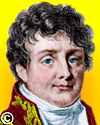
On 21 Mar 1768, Jean-Baptiste-Joseph Fourier was born, the mathematical physicist whose life has to be seen in the context of the French Revolution and its reverberations. One might say his career followed the peaks and troughs of the political wave.
He was in turns: a teacher; a secret policeman; a political prisoner; governor of Egypt; prefect of Isère and Rhône; friend of Napoleon; and secretary of the Académie des Sciences.
Many of the “Big Name” scientists and mathematicians tend to be known in a one-dimensional way for a one specific lasting legacy. Perhaps the name comes to your mind for the Fourier Series. To see Fourier’s life as anything but one-dimensional, read Joseph Fourier - Politician and Scientist.

On 21 Mar 1917, Yigael Yadin was born, the Israeli archaeologist noted for his work on decoding and interpreting several of the Dead Sea Scrolls and his excavation at Masada, the ancient mountaintop fortress of Jewish Zealots in their revolt against Roman rule. Over his career, Yadin’s findings have shed light on various periods of ancient Israel. Today's book pick is: The Message of the Scrolls, by Yigael yadin. This book will be valued by all who are interested in the discovery and revolutionary importance of the Dead Sea Scrolls. The author present the facts about the seven Scrolls found in Cave I and the Cairo Damascus Document so that readers can draw their own conclusions. Also, an account is provided of the discovery of the Scrolls and especially the acquisition of three by Sukenik and four by Yadin for the Hebrew University. Most importantly, each of the seven Scrolls are described and its contents.
It is available from Amazon, typically about Used from $5.00. (As of earlier time of writing - subject to change.)
 | The deep study of nature is the most fruitful source of mathematical discoveries. By offering to research a definite end, this study has the advantage of excluding vague questions and useless calculations; besides it is a sure means of forming analysis itself and of discovering the elements which it most concerns us to know, and which natural science ought always to conserve. |
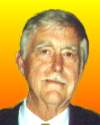 | One of the most self-evident principles … is that in science “You can’t vote on the truth.” |
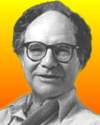 | The virtues of science are skepticism and independence of thought. |
| Before you look at today's web page, see if you can answer some of these questions about the events that happened on this day. Some of the names are very familiar. Others will likely stump you. Tickle your curiosity with these questions, then check your answers on today's web page. | |
| Births | |
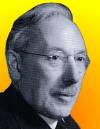 | David Keilin, born 21 Mar 1887, was a Russian-British biochemist who discovered certain enzymes he called cytochromes. Like haemoglobin, the cytochromes contain iron. Cytochrome is a pigment found in some cells, such as bacteria and yeast. What function of the cell involves cytochromes? |
| Deaths | |
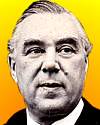 | Patrick Steptoe (1913-1988) was a British scientist and medical researcher who, with Robert Edwards, perfected in-vitro fertilization of the human egg. Their technique made possible in the birth of Louise Brown, the world’s first “test-tube baby.” In what decade was the world’s first “test-tube baby” born? |
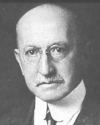 | Carl Koller (1857-1944) was Czech-born American ophthalmic surgeon whose introduction of a new surface anesthetic in eye surgery (1884) inaugurated the modern era of local anesthesia. He discovered this substance when he noticed it had a numbing effect on the tongue and, after experimenting with animals, he introduced it as a local anesthetic in ophthalmology. It was also quickly adopted for nose and throat surgery and for dentistry. What substance did Koller introduce as a local anesthetic? |
| Events | |
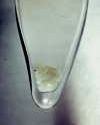 | On 21 Mar 1942, a secret report was submitted suggesting a name for a new artificial element. The paper was held secret until after WW II, when it was published by the Journal of the American Chemical Society in 1948. The authors were Glenn Seaborg and Arthur C. Wahl. What was the name the authors chose for the new element? |
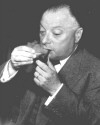 | On 21 Mar of a certain year, Wolfgang Pauli published his “exclusion principle” in an article in Zeitschrift für Physik. Pauli introduced the idea that two nearby electrons cannot be in exactly the same state at the same time. For this, now fundamental, contribution to quantum mechanics, he was awarded a Nobel Prize. In which decade of his life (age) did Pauli publish his “exclusion principle”? |
Fast answers for the previous newsletter for March 20: B.F. Skinner • dynamo model • Isaac Newton • George Westinghouse • solar eclipse.
 If you enjoy this newsletter, the website, or wish to offer encouragement or ideas, please send feedback by using your mail reader Reply button.
If you enjoy this newsletter, the website, or wish to offer encouragement or ideas, please send feedback by using your mail reader Reply button. Your click on a Facebook, StumbleUpon, or other social button on the site webpages is also a welcome sign of appreciation. Thank you for using them.
© This newsletter is copyright 2020 by todayinsci.com. Please respect the Webmaster's wishes and do not put copies online of the Newsletter — or any Today in Science History webpage. (If you already have done so, please remove them. Thank you.) Offline use in education is encouraged such as a printout on a bulletin board, or projected for classroom viewing. Online, descriptive links to our pages are welcomed, as these will provide a reader with the most recent revisions, additions and/or corrections of a webpage. For any other copyright questions, please contact the Webmaster by using your mail reader Reply button.
--
If you do not want to receive any more newsletters, Unsubscribe
To update your preferences and to unsubscribe visit this link
Executive Real Estate Business Class
-
"It was like a man with wings. It wasn't like anything you'd see on TV or in a monster movie." ...
About the publisher
Search This Blog
Blog Archive
-
▼
2021
(585)
-
▼
March
(44)
- Newsletter for Wednesday 31 March.
- On This Day for March 30 - Failed assassination at...
- Newsletter for Tuesday 30 March.
- On This Day for March 29 - Dominion of Canada crea...
- Newsletter for Monday 29 March.
- The real history behind new film 'Ammonite', starr...
- On This Day for March 28 - Constantinople renamed ...
- Newsletter for Sunday 28 March.
- On This Day for March 27 - Cleopatra reinstated as...
- Newsletter for Saturday 27 March.
- Catch a break with spring savings
- On This Day for March 26 - Signing of Israel-Egypt...
- Newsletter for Friday 26 March.
- On This Day for March 25 - Robert the Bruce crowne...
- On This Day for March 24 - Exxon Valdez Alaskan oi...
- Newsletter for Wednesday 24 March.
- On This Day for March 23 - Lewis and Clark's retur...
- Newsletter for Tuesday 23 March.
- On This Day for March 22 - Murder at Jamestown, Ya...
- Newsletter for Monday 22 March.
- Roman medicine: 6 ways people stayed healthy
- On This Day for March 21 - Closing of Alcatraz pri...
- Newsletter for Sunday 21 March.
- On This Day for March 20 - AUM subway attack, Maud...
- Newsletter for Saturday 20 March.
- On This Day for March 19 - Iraq War begins, Glenn ...
- Newsletter for Friday 19 March.
- On This Day for March 18 - Election of Chen Shui-b...
- On This Day for March 17 - Vote to end apartheid, ...
- On This Day for March 16 - My Lai Massacre, Caroli...
- On This Day for March 15 - Julius Caesar assassina...
- On This Day for March 14 - Reelection of Vladimir ...
- Newsletter for Sunday 14 March.
- On This Day for March 13 - The planet Uranus disco...
- Newsletter for Saturday 13 March.
- Newsletter for Friday 12 March.
- Newsletter for Thursday 11 March.
- Newsletter for Wednesday 10 March.
- On This Day for March 9 - Battle of the Monitor an...
- Newsletter for Monday 8 March.
- Newsletter for Sunday 7 March.
- On This Day for March 6 - King Tut's tomb opened, ...
- On This Day for March 2 - Moroccan independence de...
- On This Day for March 1 - Establishment of Yellows...
-
▼
March
(44)
-
Blogroll
-
About
HistoryFact










0 comments:
Post a Comment